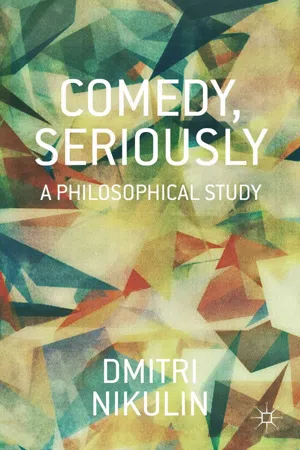Notes
Preface
1. Indeed, Emmanuel Levinas will even claim that solipsism is the very structure of reason: E. Lévinas. Le temps et l'autre. Paris: PUF, 1983, p. 48: “le solipsisme n’est ni une aberration, ni un sophisme: c’est la structure même de la raison.”
2. As Hegel approvingly says, “Don Cesar in Schiller’s ‘Braut von Mesina’ can rightly exclaim: ‘There is no higher judge over me’, and when he is punished, he must pronounce judgement on himself and execute it.” G. W. F. Hegel. Aesthetics. Lectures on Fine Art. Vol. I–II. Trans. by T. M. Knox. Oxford: Clarendon, 1975, p. 192; G. W. F. Hegel. Vorlesungen über die Ästhetik. In Werke. Bd. 13–15. Frankfurt am Main: Suhrkamp, 1986, Bd. 13, p. 252.
3. Unlike in Epictetus’s admonishment: “Remember that you are an actor in a play, which is as the playwright wants it to be . . . What is yours is to play the assigned part well. But to choose it belongs to someone else.” (trans. N. White). Epictetus. Ench. 17.
4. Some of the ideas developed in the book are presented in D. Nikulin, “The Comedy of Philosophy,” in Engaging Agnes Heller: A Critical Companion. Ed. by K. Terezakis. Lanham et al.: Lexington, 2009, pp. 167–192.
5. As Walter Benjamin observes, philosophy appears as ethics in tragedy and as logic in comedy, in which philosophy is “absolute” and “refined”: “Was nämlich für die Tragödie die Ethik, das ist für die Komödie die Logik, in beiden ist philosophische Substanz, aber in der Komödie die absolute, gereinigte.” W. Benjamin. “Molière: Der eingebildete Kranke.” Gesammelte Schriften, Bd. II.2. Ed. by Rolf Tiedemann and Hermann Schweppehäuser. Frankfurt am Main: Suhrkamp, 1972, p. 612.
6. Historically speaking, New Comedy emerges when ancient philosophy comes to its fruition after the death of Aristotle, when the Academy and the Lyceum are already well established and Stoicism is about to appear.
Chapter 1
1. Narrative distinguishes the important from the nonimportant, forgets something, and eventually finds it impossible to fit the fullness of a live event into a linear progression. Such incongruity at times gives rise to different, often competing stories concerning the origins of the same thing. Yet we try to reach an origin (or the origin) again and again, often missing it, though doing so in interesting and philosophically fruitful ways.
2. Aristotle, Poet. 1448a35–36.
3. Cf. Plato, Theaet. 173d. Also see S .I. Radzig. History Ancient Greek Literature (Istoriya drevnegrecheskoy literatury). Moscow: Vysshaya shkola, 1982 (5th ed.; first publ. 1940), p. 275 sqq.
4. Dionysus was the god of wine, ritual madness, and ecstasy in Greek mythology.
5. Jesting and jeering were important parts of a popular ritual that can be understood as carnivalesque. Demosthenes 18.122; Athenaeus 14.621e–f. Cf. M. Bakhtin. Rabelais and His World. Trans. by Hélène Iswolsky. Cambridge (MA): MIT Press, 1984. However, such mockery also parodied the heroic battle. Here, myth was mocked, killing was substituted with verbal duels, and immortal glory in the word of the poet was replaced by a seemingly fleeting yet constantly self-reproducing communal fame. Battle was substituted with competition (agōn), where the purpose was to win a verbal struggle. Later, in Attica, this became a literary contest on the occasion of a communal celebration; the winners’ names and works survive even today.
6. Aristotle, Poet. 1448a32. M. Foucault. Fearless Speech. Ed. by Joseph Pearson. Los Angeles: Semiotext(e), 2001; D. Nikulin. “Richard Rorty, Cynic: Philosophy in the Conversation of Humankind.” Graduate Faculty Philosophy Journal 29:2 (2008), pp. 85–111.
7. Ian C. Storey. Eupolis: Poet of Old Comedy. Oxford: Oxford University Press, 2003, p. 41.
8. Aristotle directly associates kōmos with the inception of comedy (Aristotle, Poet. 1449a11–12; cf. Aristophanes, Nubes 538–39).
9. LSJ; cf. Plutarch. Moralia 355E, cf. 365C (De Iside et Osiride); Athenaeus 14.621b–622c. According to Aristotle, an important aspect of the phallika is that they were based on spontaneous improvisation (aytoskhediastikē). Aristotle, Poet. 1449a10–11. Improvisation also played an important role in the mime, as later in the commedia dell’arte, which influenced the German Stegreiftheater. Improvisation means that the action is defined, o...




